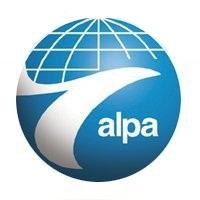Wed, Dec 19, 2012
Cites Cost Of Compliance As Primary Reason
The FAA has published in the Federal Register a flight crewmember duty and rest requirements docket that continues to exclude cargo pilots from its more stringent crew rest rules imposed on pilots on airplanes carrying passengers.

The FAA says that in its original Regulatory Impact Analysis (RIA), the portion of scheduling costs related to cargo-only operations of air carriers that conduct both passenger and cargo-only operations (mixed operations carriers) were inadvertently excluded from the reported costs of extending the final rule to cargo-only operations. The agency says the Initial Supplemental RIA fixes that omission and that revision has significantly increased the estimates of the stated costs of extending the final rule to cargo-only operations. Due to inclusion of impacts on cargo-only operations, a few air carriers were reclassified for ease of explication.
The FAA said in the filing that it assumed that benefits associated with averting a single catastrophic accident involving a cargo plane would range between $20.35 million and $32.55 million.
In a statement posted on its website, the Air Line Pilots Association (ALPA) said:
“After reviewing the FAA supplemental cost-benefit analysis of cargo operations in the new Federation Aviation Regulation (FAR) 117 flight-time/duty-time rule generated in response to the Independent Pilots Association suit, ALPA remains committed to ensuring One Level of Safety for all passenger and cargo operations.

“We believe calculating cost versus benefit based on the absence of an aircraft accident and resulting passenger fatalities is a fallacy, and a severe deficiency in the cost-benefit process. Because cargo aircraft do not carry passengers, it’s not surprising that the cost outweighs the benefit, yet cargo aircraft share the skies and airports with airlines conducting passenger operations. While government has shifted to evaluating safety improvements by eliminating accident precursors in other areas, it chose not to do so in this case. ALPA firmly believes that there is no price tag on the safety of our skies.
“We remain committed to pursuing a fix to the flawed cargo cutout from the new flight-time/duty-time rule, both through regulatory action and pursuit of the Safe Skies Act on Capitol Hill.”
The FAA will accept comments on the Initial Supplemental RIA through February 11th.
More News
Terminal Radar Service Area Airspace surrounding designated airports wherein ATC provides radar vectoring, sequencing, and separation on a full-time basis for all IFR and participa>[...]
Very High Frequency (VHF) The frequency band between 30 and 300 MHz. Portions of this band, 108 to 118 MHz, are used for certain NAVAIDs; 118 to 136 MHz are used for civil air/grou>[...]
“From approximately November 2021 through January 2022, Britton-Harr, acting on behalf of AeroVanti, entered into lease-purchase agreements for five Piaggio-manufactured airc>[...]
Also: Virtual FLRAA Prototype, IFR-Capable Autonomous A/C, NS-32 Crew, Golden Dome Missile Defense Bombardier announced that the first production Global 8000 successfully completed>[...]
Aero Linx: The 1-26 Association (Schweizer) The Association’s goal is to foster the helpfulness, the camaraderie, and the opportunity for head-to-head competition that is fou>[...]
 ANN's Daily Aero-Term (05.29.25): Terminal Radar Service Area
ANN's Daily Aero-Term (05.29.25): Terminal Radar Service Area ANN's Daily Aero-Term (05.30.25): Very High Frequency (VHF)
ANN's Daily Aero-Term (05.30.25): Very High Frequency (VHF) Aero-News: Quote of the Day (05.30.25)
Aero-News: Quote of the Day (05.30.25) Airborne 05.23.25: Global 8000, Qatar B747 Accepted, Aviation Merit Badge
Airborne 05.23.25: Global 8000, Qatar B747 Accepted, Aviation Merit Badge ANN's Daily Aero-Linx (05.30.25)
ANN's Daily Aero-Linx (05.30.25)




